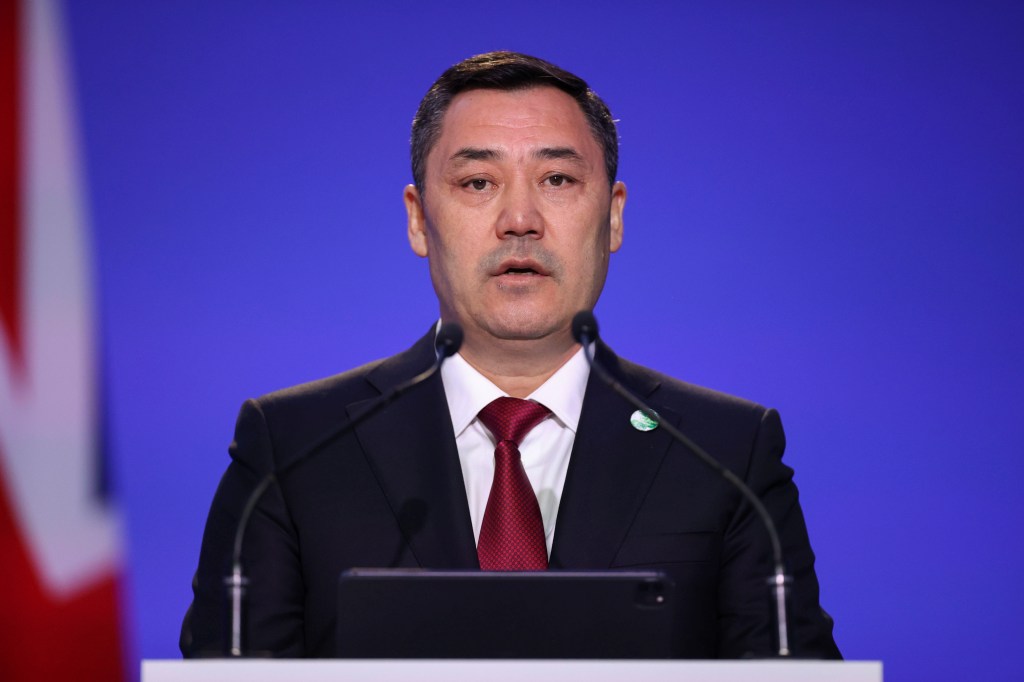New York, November 9, 2021 – Kyrgyz authorities should retract a recently devised bill increasing state control over the country’s public broadcaster and instead enact changes to safeguard the corporation’s editorial independence, the Committee to Protect Journalists said today.
On October 29, 15 prominent media representatives and advocacy groups issued a statement calling on Kyrgyzstan’s Cabinet of Ministers and Ministry of Culture to withdraw a draft law on OTRK, the state-funded broadcaster, according to the group’s statement and news reports.
The bill, “On the Kyrgyz Broadcasting Corporation,” has not been made publicly available but CPJ has reviewed a copy. The draft proposes altering the corporation’s official status from a “public television channel” to a “national state agency.”
As part of the changes, the broadcaster’s supervisory council, partially nominated by non-governmental organizations drawn from civil society, would be abolished, meaning the corporation’s general director will be appointed by the Kyrgyzstan president instead of the council.
The media representatives and organizations argue that these measures will remove public control over the broadcaster’s operations and legitimize “unlimited political interference” in its editorial policy.
“Proposals to grant the president the right to appoint the head of Kyrgyzstan’s state-funded broadcaster are deeply concerning and should be discarded at once,” said Gulnoza Said, CPJ’s Europe and Central Asia program coordinator. “While recognizing OTRK’s current shortcomings, the bill’s solutions run in entirely the wrong direction, and threaten to undermine journalistic freedom and ensure that the corporation will be nothing but a mouthpiece for state propaganda.”
Kyrgyzstan’s public broadcaster OTRK is the country’s largest and most watched television network, broadcasting on six television channels covering news, culture, sport and children’s TV, and five radio channels, according to news reports.
The corporation’s status was first altered from a “state” to a “public” broadcaster following Kyrgyzstan’s April Revolution in 2010, when the new authorities wanted to create a more politically impartial state-funded TV. Its 15-member supervisory council was given wide oversight powers over editorial policy and budgetary matters. Under current law, five council members are nominated by the Kyrgyzstan president, five by parliament, and five by civil society groups. The members serve for five years and elect the general director every four years.
Despite the initial success of the reforms, OTRK is frequently criticized inside Kyrgyzstan for alleged unobjective coverage and spreading state propaganda, according to news reports.
Under the new bill, the general director will be appointed by the Kyrgyzstan president at the nomination of the Ministry of Culture, although the law does not specify a set process. The statement from the 15 media representatives and organizations argues this will replace the transparency and competitiveness of the current appointment procedure with one closed to public scrutiny.
Media representatives fear the changes will grant the president increased power to interfere in broadcast content. Altynai Isaeva, a lawyer at the local independent media advocacy organization Media Policy Institute, told U.S. Congress-funded Current Time TV that under the proposed reform, the broadcaster’s editorial policy will be “totally dependent on [President Sadyr Japarov].”
Kyrgyz officials have given various explanations for the proposed changes. At a press conference on October 23, Japarov stated that reform was necessary because OTRK currently works in the interests of the supervisory council rather than the state and that the corporation ought to broadcast “national ideology.”
In their statement, the media representatives write that, although OTRK today has not become a de facto “public” broadcaster, “this says more about a lack of political will among the country’s leadership, which continues to interfere in the television station’s editorial policy,” and that the answer should instead be to provide reforms that bolster the corporation’s independence from the state.
Proposed changes to OTRK’s status are part of a wider process of legal reform that began with Japarov’s decree in February this year to review over 350 laws, reports stated. Authorities announced plans to revise three other key media laws, including the laws “On Mass Media” and “On Protecting the Professional Activity of the Journalist,” but the Justice Ministry promised to avoid making major changes to these laws for the time being following an appeal by media groups, Nurbek Sydykov, a lawyer with Media Policy Institute, told CPJ by messaging app.
The present drafts of these laws propose only insignificant alterations, Sydykov said.
CPJ emailed the Cabinet of Ministers and the office of the presidency of Kyrgyzstan and called the Ministry of Culture for comment but did not receive any replies.
